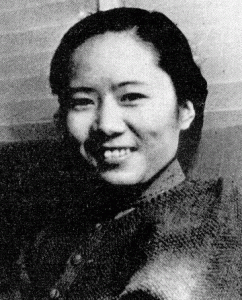Chien Shiung Wu was born in 1912 in Liu Ho, China. She began her education at her parents’ school, but then was sent to boarding school in Suzhou in 1922. She graduated at the top of her class in 1930 and went on to study at the National Central University of Nanking and the University of California, Berkeley. She received her doctorate in physics in 1940.
During World War II, Chien married and began teaching at Princeton University and Smith College. She was soon asked to join the Manhattan Club Project at Columbia University – the army’s top-secret project to develop the atomic bomb. Chien’s job was to develop a process to enrich uranium ore that would produce large quantities of uranium for the bomb.
After the war, she stayed at Columbia as a research assistant. Along with Dr. Tsung-Dao Lee and Dr. Chen Ning Yang, Chien overthrew a law of symmetry in physics called the “principle of conservation of parity.” Their discovery disproved what was a widely accepted “law” of nature – proving that science can overturn old laws. However, Chien was not credited for the discovery – instead, only Drs. Lee and Yang would go on to receive the Nobel Prize in Physics for the discovery.
Yet Chien would go on to make recognized contributions in her field. She became a full professor at Columbia University and the author of Beta Decay (1965). She was also the first Pupin Professor of Physics at Columbia, the first woman elected to the American Physical Society, the first woman to receive the Cyrus B. Comstock Award, and the first woman to be awarded an honorary doctorate from Princeton University.
Chien taught and conducted nuclear research at Columbia until she retired in 1981. She spent her retirement as a lecturer and supporter of young women in scientific careers. She is known as the “First Lady of Physics.”

